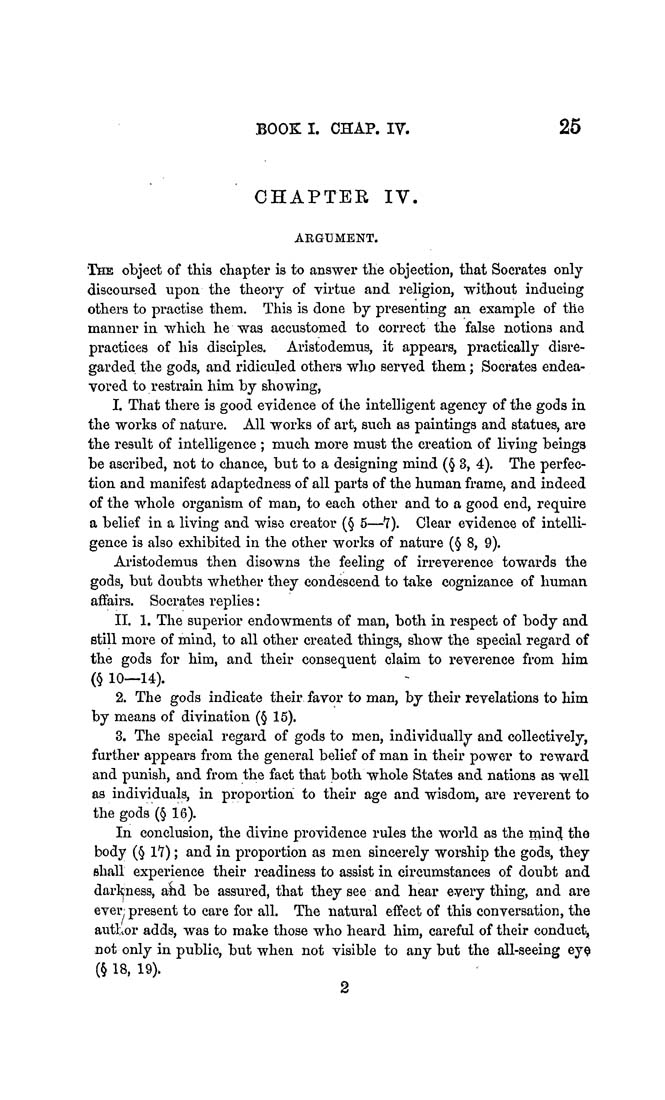BOOK 1. CHAP. IV. 25
CHAPTER IV.
ARGUMENT.
The object of this chapter is to answer the objection, that Socrates only
discoursed upon the theory of virtue and religion, without inducing
others to practise them. This is done by presenting an example of the
manner in which he was accustomed to correct the false notions and
practices of his disciples. Aristodemus, it appears, practically disre¬
garded the gods, and ridiculed others wlio served them; Socrates endea¬
vored to restrain him by showing,
1. That there is good evidence of the intelligent agency of the gods in
the works of nature. All works of art, such as paintings and statues, are
the result of intelligence ; much more must the creation of living beings
be ascribed, not to chance, but to a designing mind (§ 3, 4). The perfec¬
tion and manifest adaptedness of all parts of the human frame, and indeed
of the whole organism of man, to each other and to a good end, require
a belief in a living and wise creator (§ 5—^). Clear evidence of intelli¬
gence is also exhibited in the other works of nature (§ 8, 9).
Aristodemus then disowns the feeling of irreverence towards the
gods, but doubts whether they condescend to take cognizance of human
affairs. Socrates replies:
II. 1. The superior endowments of man, both in respect of body and
still more of mind, to all other created things, show the special regard of
the gods for him, and their consequent claim to reverence from him
(§ 10—14).
2. The gods indicate their favor to man, by their revelations to him
by means of divination (§ 15).
3. The special regard of gods to men, individually and collectively,
further appears from the general belief of man in their power to reward
and punish, and from the fact that both whole States and nations as well
as individuals, in proportion to their age and wisdom, are reverent to
the gods (§ 16).
In conclusion, the divine providence rules the world as the n^in^ the
body (§ 17); and in proportion as men sincerely worship the gods, they
shall experience their readiness to assist in circumstances of doubt and
darkness, alid be assured, that they see and hear every thing, and are
ever- present to care for all. The natural effect of this conversation, the
author adds, was to make those who heard him, careful of their conduct,
not only in public, but when not visible to any but the all-seeing ey^
(§ 18, 19).
2
|








